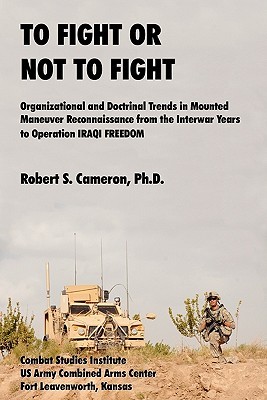
- We will send in 10–14 business days.
- Author: Robert S Cameron
- Publisher: www.MilitaryBookshop.co.uk
- Year: 2010
- Pages: 654
- ISBN-10: 1907521461
- ISBN-13: 9781907521461
- Format: 15.6 x 23.4 x 3.3 cm, minkšti viršeliai
- Language: English
- SAVE -10% with code: EXTRA
Reviews
Description
Provides a narrative analysis of US Army reconnaissance, scout, and cavalry evolution from the post-World War I era through the Iraqi conflict. It outlines key developments in the concepts governing reconnaissance units from the armored cavalry regiment down to the maneuver battalion scout platoon. These changes are placed in the context of national defense policy decisions and major Army initiatives. The title derives from the almost cyclic shifts between reconnaissance organizations oriented on information collection and those designed for a broader mission set. The text focuses on doctrinal and organizational changes, but training, materiel development, and the impact of combat operations constitute important supporting themes. This study also traces the transition from horse to vehicular reconnaissance, later bolstered by air cavalry and more recently with a variety of sensors and unmanned systems. Originally published by Combat Studies Institute in 2010, this book is profusely illustrated throughout.
EXTRA 10 % discount with code: EXTRA
The promotion ends in 23d.14:13:51
The discount code is valid when purchasing from 10 €. Discounts do not stack.
- Author: Robert S Cameron
- Publisher: www.MilitaryBookshop.co.uk
- Year: 2010
- Pages: 654
- ISBN-10: 1907521461
- ISBN-13: 9781907521461
- Format: 15.6 x 23.4 x 3.3 cm, minkšti viršeliai
- Language: English English
Provides a narrative analysis of US Army reconnaissance, scout, and cavalry evolution from the post-World War I era through the Iraqi conflict. It outlines key developments in the concepts governing reconnaissance units from the armored cavalry regiment down to the maneuver battalion scout platoon. These changes are placed in the context of national defense policy decisions and major Army initiatives. The title derives from the almost cyclic shifts between reconnaissance organizations oriented on information collection and those designed for a broader mission set. The text focuses on doctrinal and organizational changes, but training, materiel development, and the impact of combat operations constitute important supporting themes. This study also traces the transition from horse to vehicular reconnaissance, later bolstered by air cavalry and more recently with a variety of sensors and unmanned systems. Originally published by Combat Studies Institute in 2010, this book is profusely illustrated throughout.


Reviews